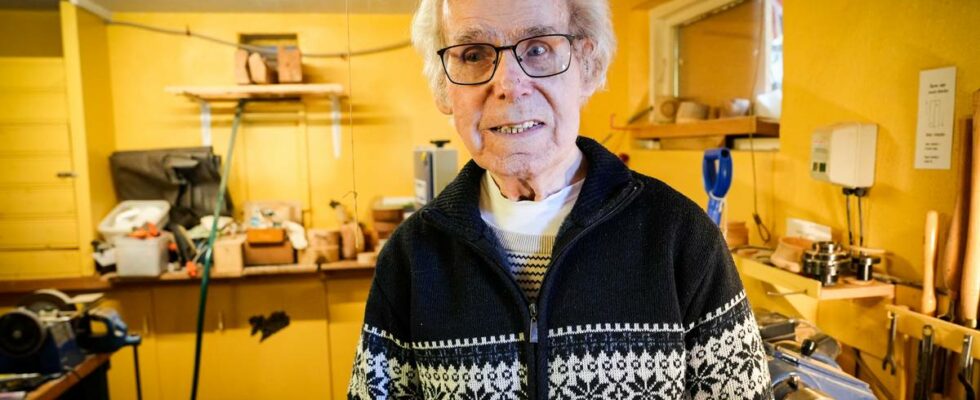– I wanted to get in touch with others, but it turned out that the others were chatting while I was completely outside. Then I went to sit at a table alone. Monrad Strømø (92) tells of a time when he was at the senior center where he lives. He wanted to be social, but the poor hearing meant that the meeting did not go as he had hoped. Lately, his hearing has gotten worse, and he wanted a new hearing appointment and a new hearing aid. But the crushing message from the Hearing Center at Haugesund Hospital was to come back in four years. They did not have the capacity to take him in for a new hearing test. A limit set by Nav means that you get a new hearing aid every six years, and it has been two years since Strømø last got a hearing aid. It was Haugesund’s Avis that first mentioned the case. Strømø says that one-to-one conversations go well, but he struggles in situations where several people are involved. He says that he felt of little value when dealing with the healthcare system. – I always have something to do, I don’t want to lie on the sofa. I have a house, a garden and a cottage. But you feel outside of society and out of touch with what is happening. And as a consequence of this, Strømø isolates himself more and more at home. Monrad Strømø (92) is an active man, but would like to be more social. It is difficult with the poor hearing. Photo: Gisle Jørgensen / news – A predicted disaster An overview from the Hearing Impaired National Association (HLF) shows that waiting times for help have increased across the country. At the hospital closest to Strømø, Haugesund Hospital, the average waiting time is 52 weeks. That is three times as long as in 2007. – This is a predicted disaster. We are getting older and more people need hearing aids. But the capacity in hearing care does not follow the development and is far from good enough, says secretary general Inger Helene Venås in HLF. Inger Helene Venås, general secretary of the National Association of the Deaf. Photo: HLF news has been in contact with Helse Fonna and the Ministry of Health and Welfare, who say they have no opportunity to comment on the matter on Thursday. And it is not just in Haugesund that waiting times are increasing. Here you can search for how the situation is in your area: To Haugesund’s newspaper, function manager Aina Merethe Vikshåland at the ear-nose-throat outpatient clinic in Helse Fonna confirms that waiting times are long. – If you have had your hearing aid for two years and need new ones, the waiting time can actually be four years. It is incredibly sad, because we know how important this is, but patients can request a service appointment for adjustment and optimization, Vikshåland tells the newspaper. Need more audiologists Only between March and May this year has the waiting time increased by several weeks in several places in the country. In Bergen, for example, the waiting time at Haukeland has increased by ten weeks recently. HLF asks that the government raise hearing care high on the priority list. – Overall, this is about us needing audiologists at work. Then more positions must be created, and the profession must be made more attractive. Today, there are not enough people who train and work on fitting hearing aids, says general secretary Venås. It is far too long to wait and it has serious consequences, says Velås at the National Association of the Deaf. – Many have psychological challenges and are unable to cope in working life. It affects individuals, families, but also the whole of society. The story of 92-year-old Strømø makes a strong impression on the general secretary. – We sat with tears in our eyes when we heard his story. He is not alone. It shows that it is necessary that something be done. She points out that hearing impairment is a major societal problem: Impaired hearing among able-bodied people costs society NOK 2 billion annually, according to a report from Oslo Economics. However, the cost in lost quality of life for those involved and their relatives is far greater, the report states. Published 13.06.2024, at 20.47
ttn-69
Monrad may have to wait four years for new hearing aids, the National Association of the Deaf is critical – news Rogaland – Local news, TV and radio

